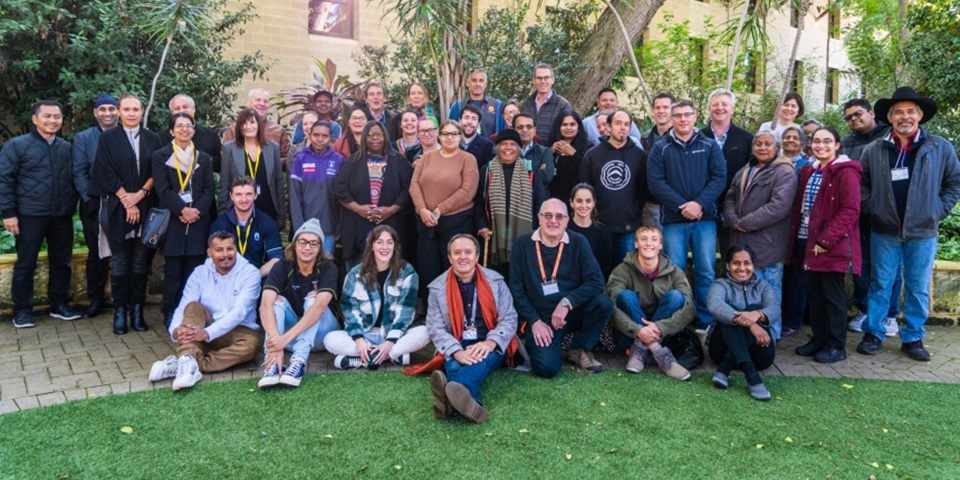News
Delivering safe water to Aboriginal communities

Aboriginal communities have come together with water planners, tech companies, infrastructure engineers and academics to develop smart solutions.
The drinking water is contaminated in nearly a quarter of remote Aboriginal communities in Western Australia. These are communities where Aboriginal people live on their homelands by choice. Traces of arsenic, nitrates, E coli and even uranium are revealed in a damning Auditor-General’s report.
Despite access to safe, acceptable and affordable water being a basic human right, according to the United Nations Sustainable Development Goals, many Australians are compromising their health when they drink water from the tap.
It’s a risk that Annette Stokes, Chief Investigator for the Western Desert Kidney Health Project, knows too well.
Every Friday we’re having funerals. Our people are dying.”
Annette Stokes
Stokes’ project set out to reduce diabetes and kidney disease in ten homelands communities. Through her research she identified unsafe nitrate levels in drinking water as a key disease risk in those communities.
High nitrate levels are associated with low birth weights, diabetes, dementia, and heart and kidney disease, among a range of other health complications.
“When you add poor diet and limited access to health services to unsafe water, it’s a perfect storm of risks affecting our people. We urgently need to find a way to monitor and filter our water.
“We just want our water fixed.”
Working together to find solutions
Now, Murdoch researchers have brought together 25 Aboriginal representatives from the Kimberley to the South West to co-design solutions. The goal is to deliver safe water and sanitation to communities across the state.
“We’ve got a crucial cross section of stakeholders together to address the water and waste issues faced by remote communities,” said Professor Rhonda Marriott, Director of Ngangk Yira Research Centre for Aboriginal Health and Social Equity.
“We had a very productive conference in 2019 and now a workshop that has developed ideas and solutions that will flow through to recommendations for policymakers.
Unfortunately, water data isn’t regularly or transparently reported in these places and so a big piece of the puzzle is about getting that data so that we can address the problem.”
Professor Rhonda Marriott
Professor Marriott, Yamatji elder Mrs Mara West, Dr Kuruvilla Mathew and Dr Martin Anda of the Harry Butler Institute are leading the collaboration with an organising panel of indigenous people from around Western Australia.
Dr Mathew and Dr Anda are environmental engineers and experts in urban water efficiency, liquid and solid waste recycling and have worked with Aboriginal communities on their homelands for many years.
They have brought representatives from Aboriginal communities together with planners from Water Corporation, private sector tech companies and infrastructure engineers to develop water and waste solutions.
It’s an initiative supported by Ngangk Yira and Kulbardi Aboriginal Centre.
“We’re undertaking hands on learning – putting the technology and infrastructure in the hands of community leaders – that will lead to informed decision making and ultimately empowerment for these communities,” said Dr Bep Uink, Research Fellow at Kulbardi Aboriginal Centre.
The co-design group has moved quickly to develop a range of solutions. Those marked to develop as a priority are below.
Develop local health expertise
The first priority is to strengthen Aboriginal Environmental Health Worker training programs in the communities. The health education programs are limited in remote areas and are a key aspect of addressing the disease risk in those communities.
As part of this, there is a need to secure at least one paid health worker position in each of the 143 homelands communities across Western Australia.
Improve water data
The second priority is to make better water quality data to available to communities. This is a crucial step in both developing supply and filtering solutions to secure safe water and providing local visibility of the safety of drinking water on a day to day basis.
It was requested that Murdoch University set up a culturally-appropriate demonstration project on Homelands Digital Water Services.
Establish knowledge sharing hub
The third priority is setting up a homelands and community services (research and development) hub. As the project moves forward, having a central database where collaboration can continue is integral to developing solutions that work for everyone.
This knowledge sharing hub and connected communities hub will facilitate the delivery of trial projects with the support of Service Providers.
Access to safe water and sanitation is a basic human right and one this collaboration will continue to drive for homelands communities across the state and beyond.